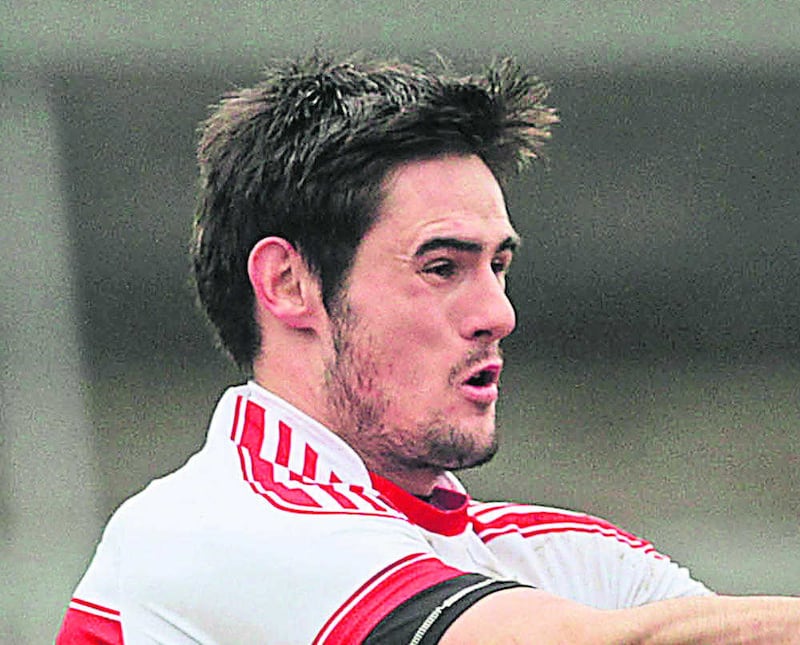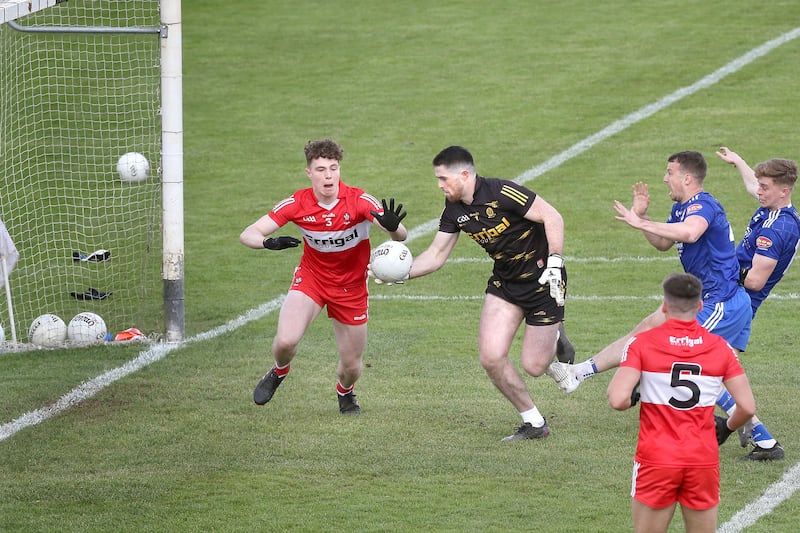Picture this: you’re presented with the chance to swap GAA for a lifestyle of luxury in a sun-drenched sporting paradise. A place where lofty ambitions of being a professional sporting superstar are realised.
Sounds like an offer too good to be true, doesn’t it?
But as Kevin Dyas, Chrissy McKaigue and Marty Clarke discovered, going from chasing minor championships and senior titles to chasing the Australian dream was not straightforward.
Dyas and Clarke had to weigh up a lot when deciding to swap venues like Clones in Monaghan for Australia’s Collingwood, the 15-times winners of the Australian Football League who play their home games at the 100,000 capacity Melbourne Cricket Ground.
Meanwhile McKaigue was faced with trying to force his way into an extremely talented Sydney Swans outfit.
From Dromintee to Down Under
When Kevin Dyas got the call from Collingwood, he had just completed his first year at the University of Ulster.
“I was doing quantity surveying, I hadn’t a clue what I wanted to do and a couple of my mates were doing it and, at the time, I thought that was great, so I went with that,” the Dromintee man recalls.
This, however, was a life changing opportunity: the offer to switch Gaelic football for Australian Rules.
Swap Ireland for Down Under and become a professional sportsperson.
“I don’t think I was ever not going to go,” Dyas admits.
“The biggest thing, obviously, is leaving your friends and your family, but they were very supportive. You’re young and full of enthusiasm, so it wasn’t much of a decision, to be honest.”
One thing Dyas did find particularly hard to leave behind, however, was his blossoming career with the Armagh footballers: “Leaving the Gaelic football was a little bit difficult,” he says.
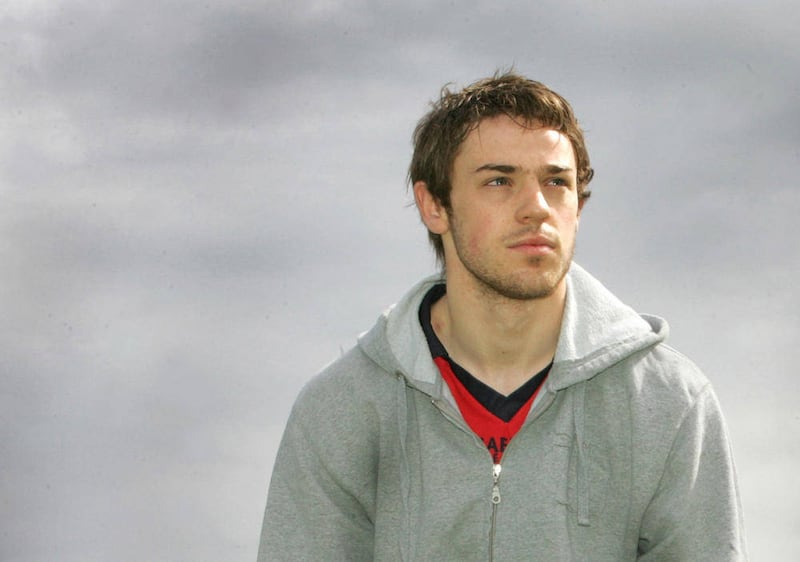
“At the time, Armagh were still going pretty well. Armagh won Ulster the year I left [2008] and I had already played for a year under Joe Kernan.
So was I coming into an Armagh team with a lot of players we would’ve watched down the years, the guys who had won Ulsters and the All-Ireland.
“That was difficult to leave but, in saying that, what I was going to was equally exciting.”
Dyas had more than one offer from Aussie Rules clubs..
“The first call I got was from Brisbane Lions and they said they were interested in having a look at me,” he says.
“I was friendly with Marty Clarke [who was playing with Collingwood] at the time and I was chatting to him about it and asking him for a little bit of advice and what not.
Then, Collingwood gave me a call and I sort of had a decision to make then between the two. Because I was friendly with Marty, I felt more comfortable going over to a club where I knew somebody.”
Collingwood, 15-time winners of the Australian Football League, is the largest supported and one of the most successful teams in Aussie Rules.
These days, they play their home games at the Melbourne Cricket Ground, which has a capacity of over 100,000.
Melbourne itself is a sprawling metropolis, with a population of nearly five million, and a sporting paradise.
A far cry from the peace and quiet to be found around Dromintee and for someone as young and enthusiastic as Dyas, surely a captivating spectacle.
Still, he thinks it was the wrong move.
Here’s his reasoning: “It was probably a bad decision. At the time, Collingwood were going really well and were probably one of the best sides in the competition, so that also attracted me to going there.
“I couldn’t speak highly enough about the club. There was probably pros and cons to playing for Collingwood.
I guess Collingwood would be the equivalent of playing for your Dublin here in Ireland. A massive club in the city, probably the biggest supporter base out of all the clubs. It’s a huge, huge club.
“In terms of facilities, looking after us, I couldn’t speak highly enough about them.
But it was very, very difficult to make an impact. I guess that’s why, when you look back, you can see how well Marty Clarke did at the start because he was basically going over to a club who were at the peak of their powers and managed to get into the team, so I guess that makes his achievements even more impressive.
“In hindsight, if I could go back and do it again, I would probably go to a lesser club. Obviously, it’s much easier going to a club who are weaker but at the time I went with Collingwood.”
Dyas found the environment in Melbourne, bar the balmier climes, to be familiar, but there was one factor he hadn’t prepared for.
“The professional lifestyle is fairly different.” he says.
“The hardest thing for me to deal with at the start was the amount of free time you have.
“You train a lot and you train hard but, most days, you’re finished up around three o’clock and some days when training’s very light, you might be off on Wednesday or you might be finished at 12.
“Looking back, being young and probably a little bit naïve, I should have been more productive with my time.
“Maybe done a course in college and, to be honest, all of that is there for you if you go looking for it.
“I guess it’s up to the player to be proactive about it, it’s maybe something that I wasn’t at the time. I was just happy to have time off and relax with mates.”
A different ball game
For Slaughtneil man Chrissy McKaigue, the call came from Sydney when he was 20 years of age and playing out of his skin for Derry.
“The move basically came about during my last year of minor football with Derry. We got to the All-Ireland final and I played a few decent games,” McKaigue says of his move to Sydney Swans as an international rookie in the autumn of 2009.
“For me, it was a tough decision, I had done well in my A-Levels, and because GAA consumed my life. I never thought about ever playing another sport.
It took me a full year before I made my mind up. This was good as I got a full year of inter-county football under my belt.”
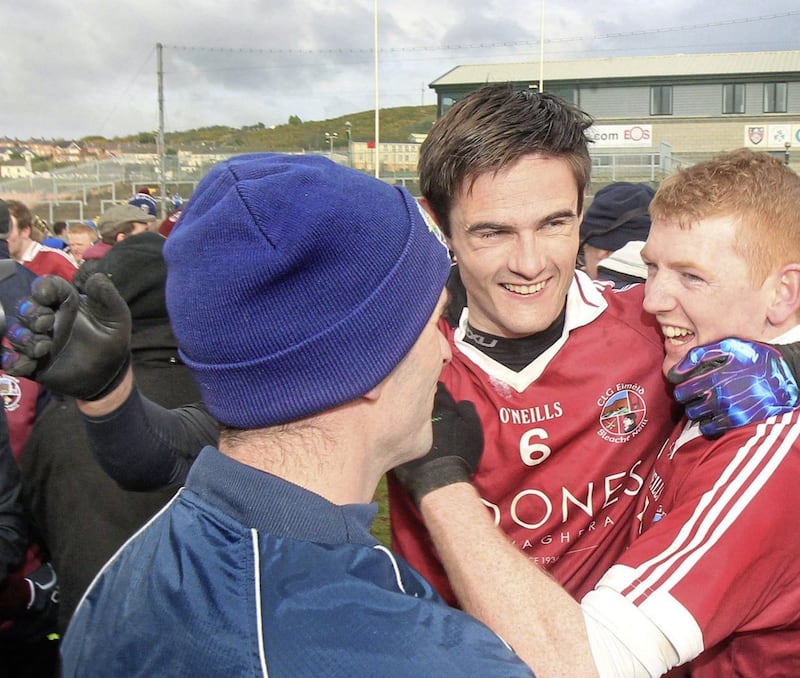
Once the decision was made McKaigue took to it like a duck to water.
“It wasn't that difficult for me settling in,” he remembers.
“The game was very different and the kicking of the ball really frustrated me.
The culture was easy enough to adapt to as the Australians share a lot of traits to the Irish, in my opinion.”
McKaigue found the difficulties of being so far away from family and friends relatively easy to manage, especially with the assistance of their clubs.
McKaigue’s family also visited: “My parents came to visit me and so did a few of my close friends,” he says.
“I enjoyed the experience of actually living away at such a young age. It allowed me to mature and become more independent.”
Injury nightmare and playing second fiddle
On the playing field, however, things didn’t exactly go to plan for McKaigue and Dyas, neither, eventually, for fellow Collingwood clubman Marty Clarke.
For McKaigue, the frustration came with playing second fiddle in a ridiculously talented squad at the Sydney Swans.
“I was part of an extremely competitive squad that were always in the top two or three teams in the competition,” he says.
“It made my breakthrough very difficult, but the quality of coaches and players still made it a worthwhile experience. In my final year, I had enough of playing reserves. We were the best reserve team in the league, but it wasn't fulfilling me to play reserve level football.
The decision [to return home] was easy because I had tunnel vision that I wanted to make an impact on the GAA world.”
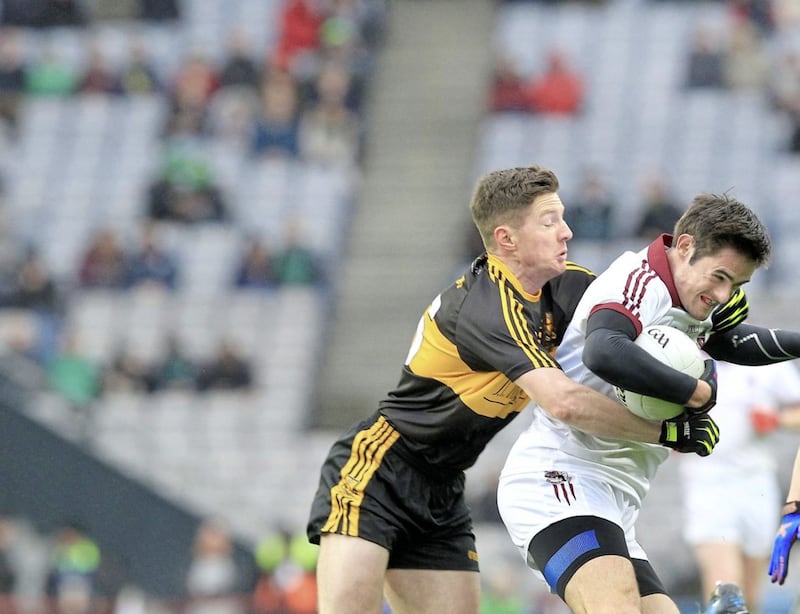
Early on at Collingwood, Dyas was impressing with the reserves, getting positive feedback from the coaches and may have been on the verge of a breakthrough with the first team, when things went a bit pear shaped.
“I was just running with the ball flat out and went to sidestep a guy and I just felt like a pop in the back of my leg and it was one of those sniper moments where you just got taken out and my hamstring went black and blue straight away and there was a big lump in the back of my leg,” Dyas recalls.
“I had to wait for a couple of weeks for the swelling to go down and then went for the scan and that revealed I’d ruptured the hamstring off the bone and that was the start of the disaster really.”
Setback after setback followed for Dyas as he pushed himself so hard to get back to full fitness that he re-injured himself.
“It wasn’t the fact that I was injured as such, it was the fact that I was over there and I couldn’t do what I was there to do,” he admits.
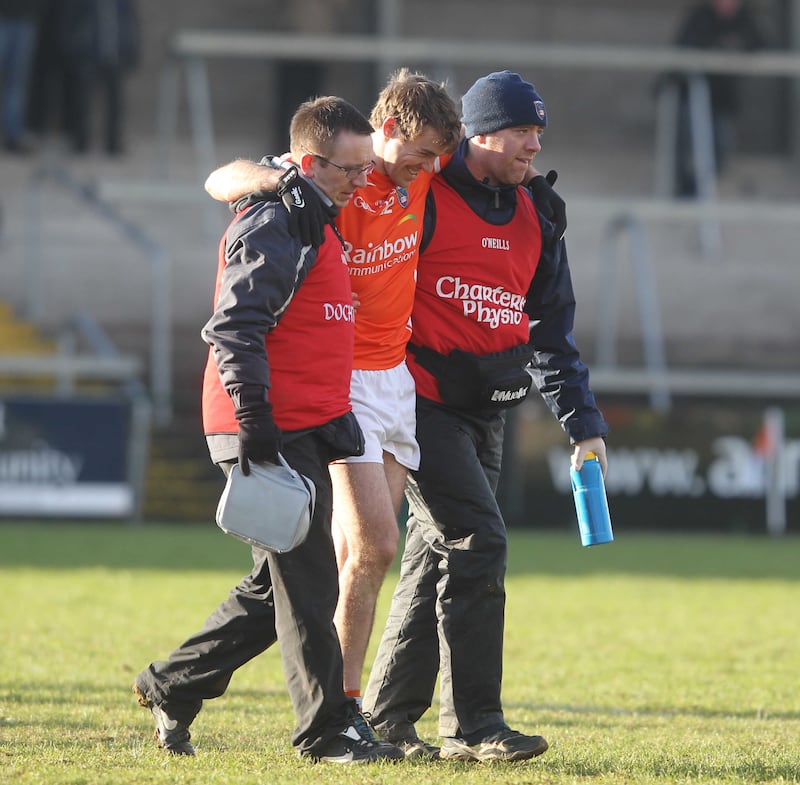
Eventually for Dyas, the frustration of not doing what he went to Australia to do – play top level professional football – became too much as well.
“I could’ve stayed on for a third year, but I was getting extremely frustrated towards the end of my second year,” he says.
“I was maybe training on the Tuesday and my hamstring was that sore I wouldn’t be able to train again until the following week. But at the same time, I knew I was getting really well looked after.
“I’d the best medical people looking after me, so part of me was thinking about staying on just to utilise that but in the end I just got extremely frustrated and ended up coming back.
“But the club were unbelievably supportive throughout the whole ordeal.”
The end game
For Marty Clarke, his well-documented battle with Addison’s disease had taken its toll and Collingwood felt they couldn’t keep him on.
“The management at Collingwood were nice, they were sort of saying ‘I’m very sorry this has happened, for pushing you and for doubting you’, but I knew my time was coming to an end,” the Down man recalled.
Clarke has no regrets. “The number one thing is what sport has given me,” he says.
“It has kind of defined me up to this point, from schools football right up to playing for Collingwood and then Down. It’s been an amazing journey, literally all over the world because we trained in South Africa and America for Collingwood.
“Before I went to Australia, I had never set foot out of Ireland other than to attend the AFL trial at Loughborough University.
"That was it. I don’t have a feeling of wishing this or that, maybe I will down the line, but not now.”
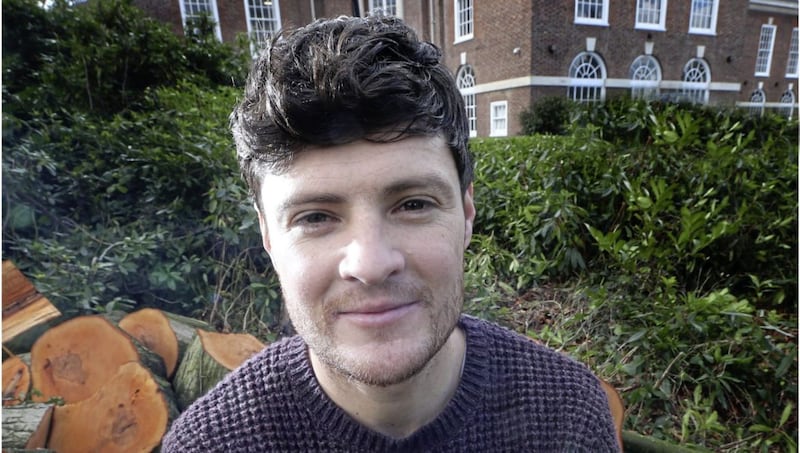
Dyas and McKaigue point to the enhanced mental strength they both brought home.
“It definitely made me a much stronger person, mentally,” says Dyas.
“It was a massive thing for a young person to go over to the other side of the world and have a crack at a professional lifestyle.
“ It definitely made me a lot stronger, more resilient, and while I obviously wish it [the injury] hadn’t happened, I can still take a lot of positives from it.”
Chrissy McKaigue agrees, and the proof is there for all to see considering his exploits with Slaughtneill since his return to his home place.
“I think the experience helped develop my mental strength, something that is so important in sport at any level.”
